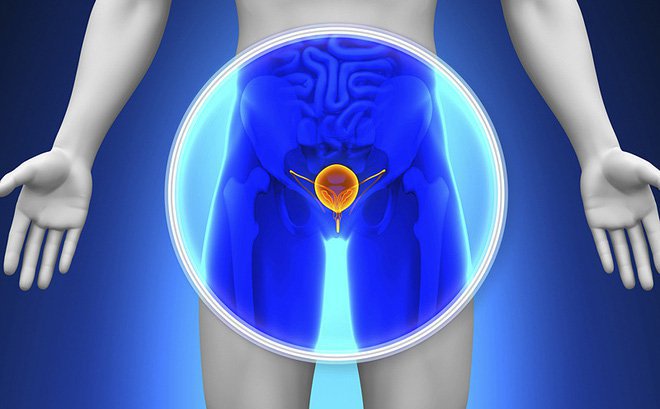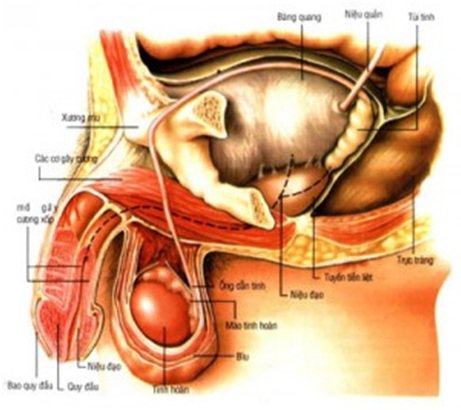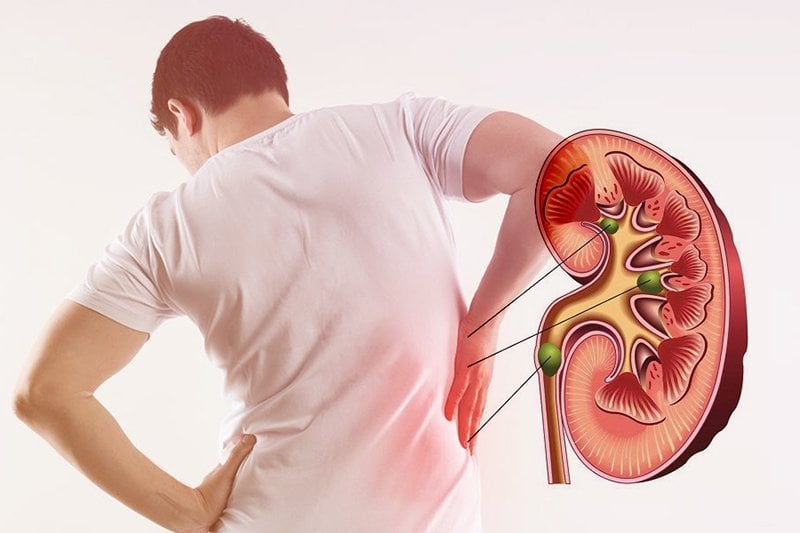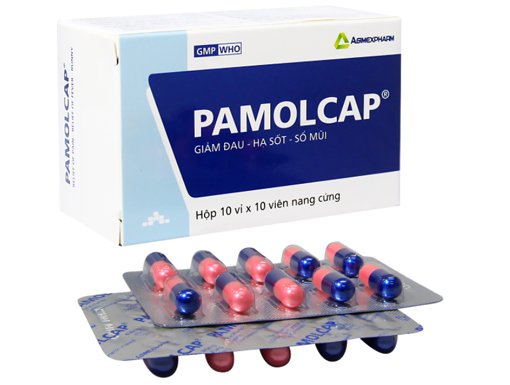What is testosterone? Effects of Testosterone on men's health
This is an automatically translated article.
The article was professionally consulted with Master, Doctor Le Thi Minh Huong - Emergency Medicine Doctor - Department of Resuscitation - Emergency - Vinmec Nha Trang International General Hospital.
Testosterone is important in the maintenance and development of physical and physiological characteristics that are typical in males, such as muscle strength or sexual function after puberty. So what is Testosterone and how does it affect men's health?
1. What is Testosterone?
Testosterone is an important hormone for men. Since the discovery of the hormone Testosterone, scientists have been surprised by the role this hormone plays in male health. For men, Testosterone not only makes sex life full, but also perfects the basic health of men, including the organs of the circulatory, respiratory, urinary, skeletal, and joint systems. nerves and brain. Testosterone levels are measured with a blood test, and changes in this number are associated with issues important to men's health.
2. Where is testosterone born?
Testosterone in men is produced mainly in the testicles (up to 95%) and to a small extent in the adrenal glands (about 4%). In women, the adrenal glands and ovaries produce testosterone (in small amounts). The earliest testosterone production begins is usually in the seventh week after conception. Testosterone levels gradually increase during puberty and peak during the late teen years, then level off. Testosterone in adult men is released about 4 to 10 mg/day. From the age of 30 onwards, testosterone levels tend to decrease slightly each year.
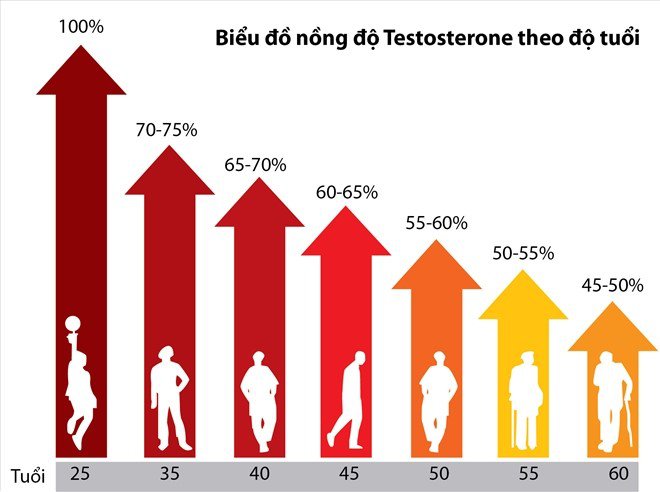
Sự thay đổi của Testosterone theo độ tuổi
3. The role of testosterone in men
Testosterone is important for almost every function in men, from the reproductive and sexual systems to muscle mass and bone density:
3.1. Endocrine system
The body's endocrine system consists of glands that produce hormones. The hypothalamus in the brain is responsible for telling the pituitary gland how much testosterone the body needs. The pituitary gland then sends a signal to the testes to stimulate the production of Testosterone. Most Testosterone is produced in the testicles, but a small amount comes from the adrenal glands, located just above the kidneys.
Testosterone starts working even before the body is born. At this time, Testosterone plays a role in the formation of male genitalia. During puberty, Testosterone is responsible for the development of male attributes such as a deeper voice and growth of beard and body hair. In addition, Testosterone also promotes muscle growth and creates a feeling of “sexual desire”.
Testosterone starts working even before the body is born. At this time, Testosterone plays a role in the formation of male genitalia. During puberty, Testosterone is responsible for the development of male attributes such as a deeper voice and growth of beard and body hair. In addition, Testosterone also promotes muscle growth and creates a feeling of “sexual desire”.
3.2. Reproductive system
The male genitals are formed around the seventh week of pregnancy with the help of Testosterone. During puberty, as Testosterone levels rise, the testicles and penis grow strongly. The testicles produce a steady stream of testosterone and supply new sperm each day.
If testosterone levels are low, there is a risk of erectile dysfunction. In addition, long-term use of Testosterone therapy can cause decreased sperm production. Testosterone therapy can also cause an enlarged prostate and make the testicles smaller and softer. In addition, men with prostate or breast cancer should not undergo Testosterone replacement therapy.
If testosterone levels are low, there is a risk of erectile dysfunction. In addition, long-term use of Testosterone therapy can cause decreased sperm production. Testosterone therapy can also cause an enlarged prostate and make the testicles smaller and softer. In addition, men with prostate or breast cancer should not undergo Testosterone replacement therapy.
3.3. Sexual ability
During puberty, testosterone levels in men increase, stimulating the growth and maturation of the testicles, penis and pubic hair. Voices become deeper, muscles and body hair develop. Along with that, sexual desire is increasing.
Men with low Testosterone are likely to experience a loss of sex drive. Sexual arousal or sexual activity causes testosterone levels to rise. Testosterone can drop during a long period of sexual inactivity.
Men with low Testosterone are likely to experience a loss of sex drive. Sexual arousal or sexual activity causes testosterone levels to rise. Testosterone can drop during a long period of sexual inactivity.
3.4. Central nervous system
Our bodies have a testosterone control system, sending signals through specific hormones and chemicals in the blood. The hypothalamus in the brain tells the pituitary gland how much Testosterone is needed, and the pituitary gland transmits that information to the testes.
Testosterone has a necessary role in certain behaviors, including aggression and leadership. Besides, Testosterone is also a measure of competitiveness and helps to boost self-esteem. Similar to how sexual activity can affect testosterone levels, engaging in competitive activities has the potential to cause a man's testosterone levels to increase, or decrease. Low testosterone leads to loss of confidence, sleep disturbances, lack of energy and decreased motivation. And yet, this condition also reduces the ability to concentrate and causes feelings of sadness.
However, it should be noted that Testosterone is only one factor influencing personality traits. Other factors from biology and environment also have a certain impact.
Testosterone has a necessary role in certain behaviors, including aggression and leadership. Besides, Testosterone is also a measure of competitiveness and helps to boost self-esteem. Similar to how sexual activity can affect testosterone levels, engaging in competitive activities has the potential to cause a man's testosterone levels to increase, or decrease. Low testosterone leads to loss of confidence, sleep disturbances, lack of energy and decreased motivation. And yet, this condition also reduces the ability to concentrate and causes feelings of sadness.
However, it should be noted that Testosterone is only one factor influencing personality traits. Other factors from biology and environment also have a certain impact.
3.5. Skin and hair
When it comes to adulthood, Testosterone promotes hair growth on the head, as well as hair in the armpits and around the genitals. Hair also appears on the arms, legs, and chest.
Low testosterone can cause men to lose part of their body hair.
Low testosterone can cause men to lose part of their body hair.
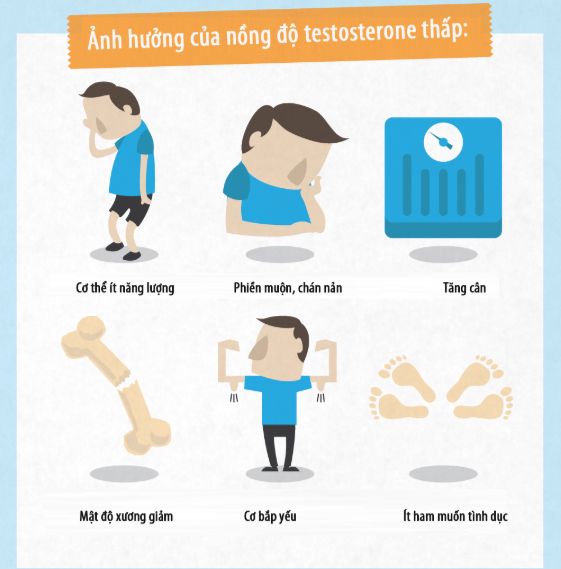
Nồng độ Testosterone thấp gây ra nhiều vấn đề nghiêm trọng đối với sức khỏe nam giới
3.6. Muscles, Fats and Bones
Testosterone is one of the factors involved in the growth of muscle mass and their strength. Testosterone increases neurotransmitters, stimulating tissue growth. In addition, it also interacts with receptors in genes, leading to protein synthesis. Testosterone increases levels of growth hormone, making training in men more likely to improve muscle mass. In addition, Testosterone also increases bone density and plays an important role in the production of red blood cells from the bone marrow. Men with very low levels of testosterone are more likely to suffer injuries and fractures. Testosterone also plays an essential role in fat metabolism, helping men to consume fat more efficiently. Lowering testosterone levels leads to an increase in body fat.
3.7. Circulatory system
Testosterone is transported in the blood throughout the body. Therefore, the only way to determine Testosterone levels is to do a blood test.
Some studies suggest that Testosterone may have a positive effect on the heart. However, some other studies show that Testosterone has an adverse effect on cholesterol levels, blood pressure and blood clotting. So, when it comes to the effects of Testosterone on the heart, recent studies have shown conflicting and inconsistent results.
It can be said that man's bravery lies in each "Testosterone key". Therefore, to increase testosterone levels in men, men need to follow a healthy, persistent and disciplined lifestyle.
Some studies suggest that Testosterone may have a positive effect on the heart. However, some other studies show that Testosterone has an adverse effect on cholesterol levels, blood pressure and blood clotting. So, when it comes to the effects of Testosterone on the heart, recent studies have shown conflicting and inconsistent results.
It can be said that man's bravery lies in each "Testosterone key". Therefore, to increase testosterone levels in men, men need to follow a healthy, persistent and disciplined lifestyle.
Please dial HOTLINE for more information or register for an appointment HERE. Download MyVinmec app to make appointments faster and to manage your bookings easily.
Reference source: Healtline.com; Mayoclinic.org
This article is written for readers from Sài Gòn, Hà Nội, Hồ Chí Minh, Phú Quốc, Nha Trang, Hạ Long, Hải Phòng, Đà Nẵng.

